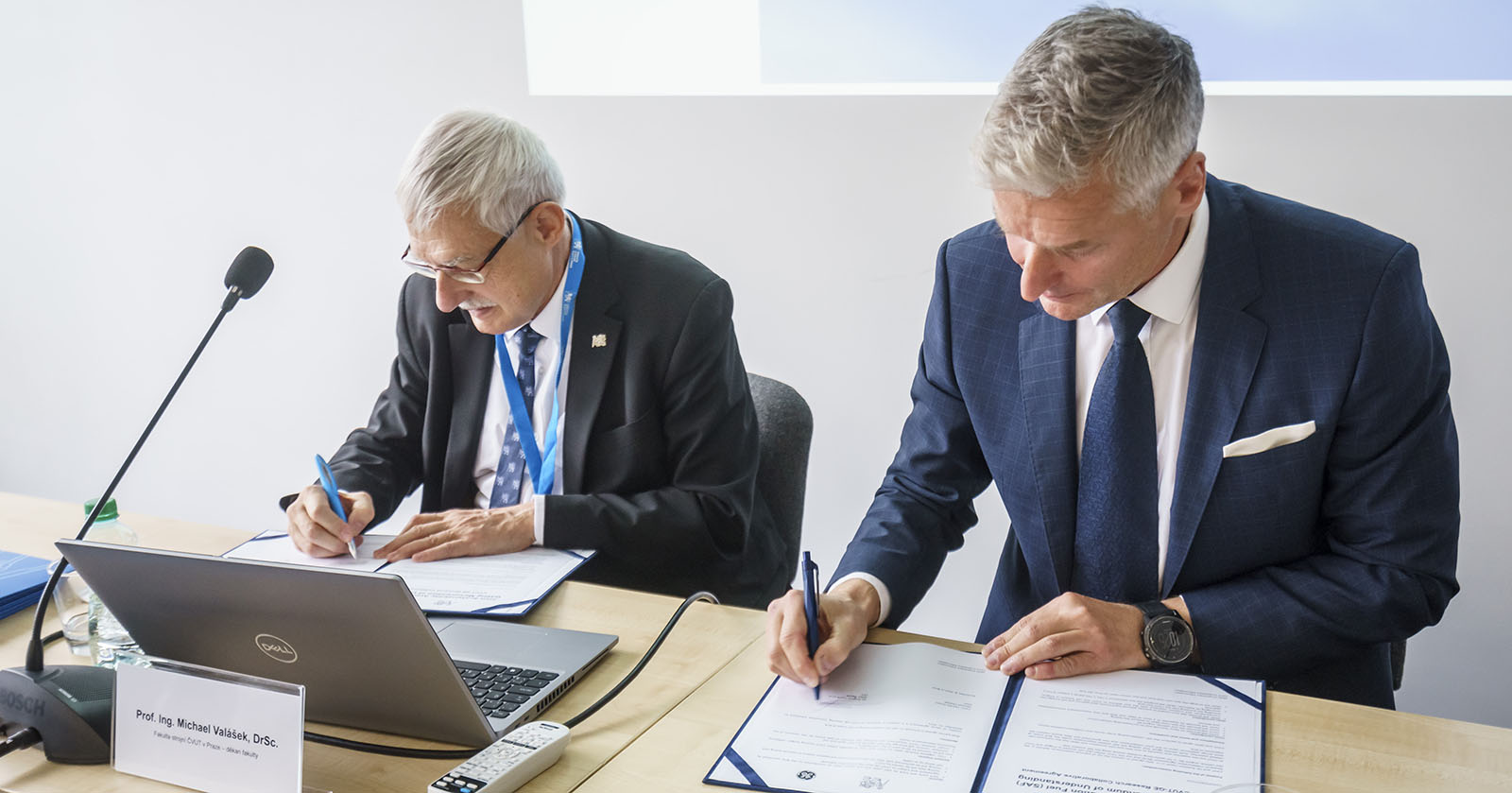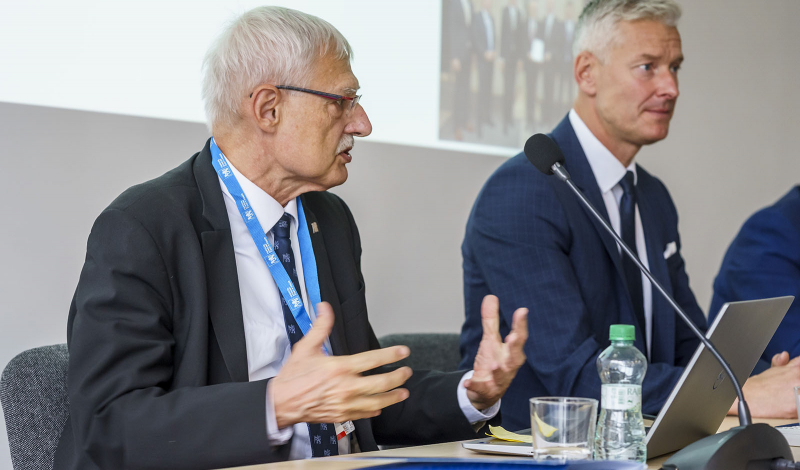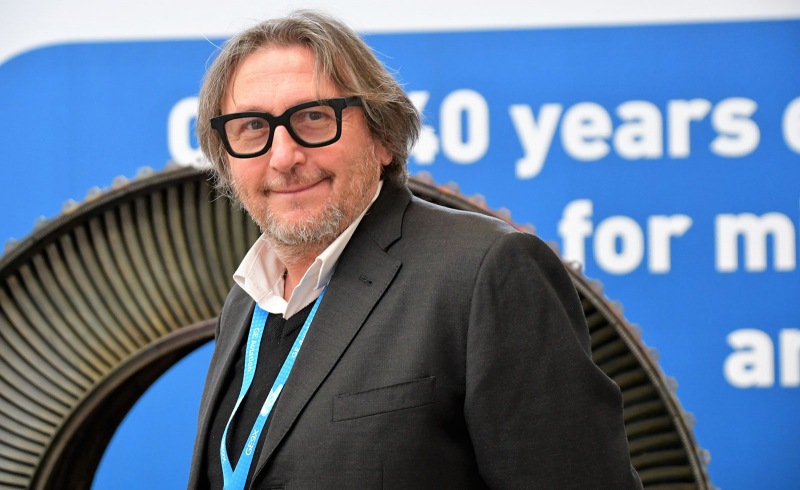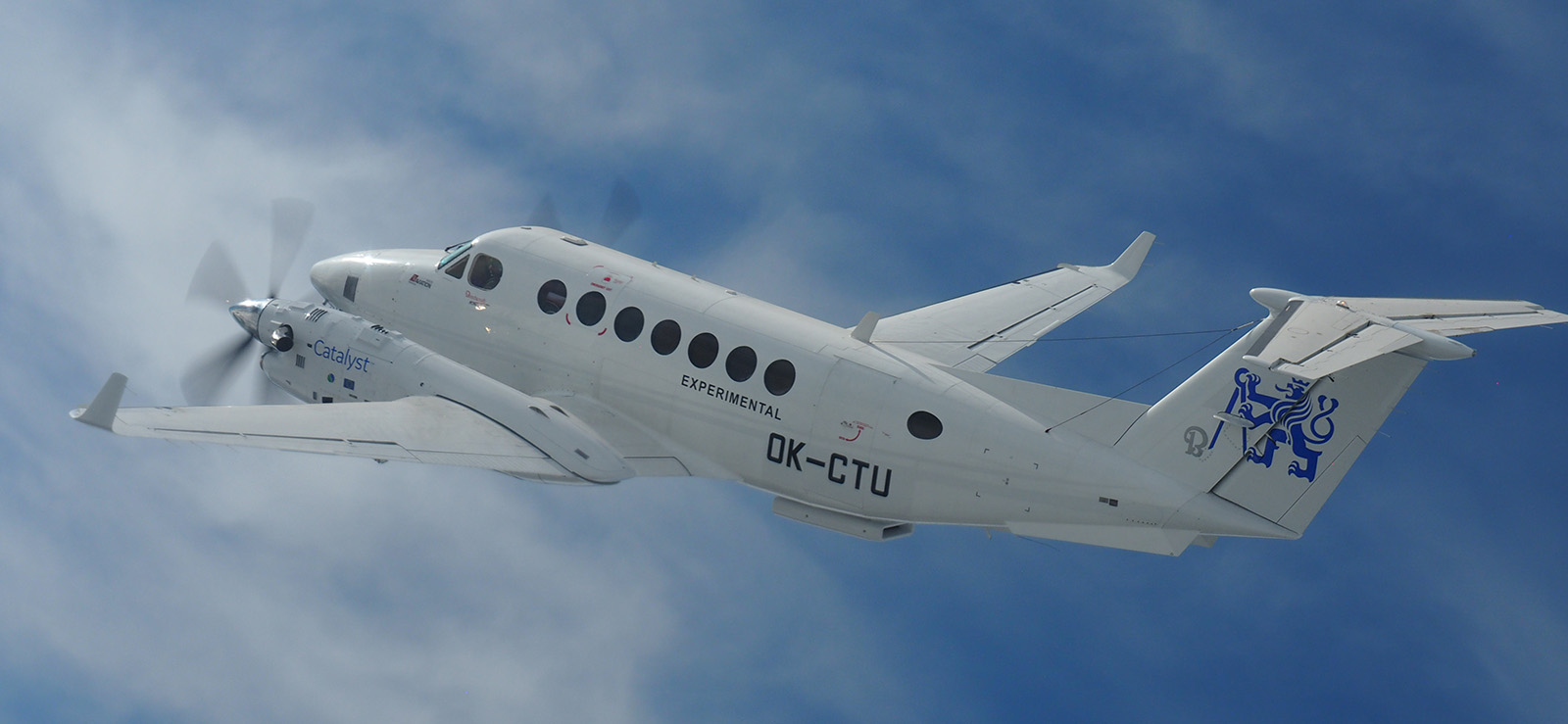Future
Sustainable fuels for the Catalyst
Expansion of the collaboration between GE Aviation Turboprop and the Czech Technical University in Prague marks the start of new demonstration to power the Catalyst engine with SAF.
Nov 2021
Like every other GE and CFM engine for medium and long-haul aircraft, the new Catalyst is also capable of using so-called biofuels, which in a more technical language are defined as Sustainable Aviation Fuels (SAF). GE Aviation has been committed to this technological field since 2007, working right up to the certification process with the regulatory bodies.
The first turboprop engine developed entirely in Europe in the last 50 years is thus becoming the "watershed" in its market segment in terms of flight sustainability. This is confirmed by collaboration announced by GE Aviation Turboprop and the Czech Technical University in Prague CVUT that adds the use of SAFs to the already distinguished collaboration between two Czech players.
The specific aim will be to demonstrate the capabilities of the new Catalyst powered by alternative "drop-in" fuel blended with Jet-A1 fuel traditionally used in commercial aviation. This would result in the production of data and analysis contributing to the predominant objective of GE Aviation with the main institutional and industry players: to replace 10% of global fuel consumption in 10-15 years (only 1% has been achieved thus far) and even to reach 100% of demand by 2050.
"We are enthusiastically opening a new technological chapter in the research and development cooperation with the University, and right on its 5th anniversary," says Milan Slapak, CEO and General Manager of GE Aviation Czech. “And this is just another benefit for the aviation ecosystem that began with the development of digital technologies for the predictive maintenance of turboprop engines, through thousands of hours of testing on the new test cells at the airport of Hradec Kralove, and sublimated by Catalyst’s first flight. I think it's a story of excellent collaboration, of human and technological excellence, unparalleled between industry and academia.”
Operation of the SAF-powered Catalyst will commence in early 2022 in the new, advanced test cells located in the outskirts of the Czech capital. These test cells have hosted engine tests over the past three years. The joint team of researchers, experts and engineers from GE Aviation Turboprop, CVUT and Avio Aero has already begun preparation work here.
"The test center for aviation and space research opened in 2016 is the result of excellent work of our Faculty in cooperation with GE teams," explains Michael Valasek, Dean of Mechanical Engineering at CVUT. It's a true ecosystem, with a hundred experts and over twenty PhD students who can rely on applied, empirical research and development thanks to four fully equipped turboprop test cells, a dynamometer, and even a test aircraft."
Since the start of operations, the test center has already collected remarkable results, counted in over 100 publications, a dozen international patents and more than 200 terabytes of data generated during engine testing. “They are a treasure trove for the research of turboprop engine maintenance and ultimately for the future of this technology ecosystem we have set up,” adds the Dean. “They represent a sustainable future, as we are going to work with SAFs and expect to add significant results and robust data to the flight test campaign currently underway. This will further validate Catalyst’s compatibility with SAFs now and will work exactly in the direction of the European Green Deal.”
As we are going to work with SAF, we expect to add significant results and robust data to the flight test campaign currently underway and this will work exactly in the direction of the European Green Deal
From the earliest phases of the Catalyst development, Avio Aero coordinated the activities, also combining the work within the main European research program, CleanSky2: the engine benefited from the technologies developed in the MAESTRO project. These technologies, including additive manufacturing, have led to the development of an engine designed to drastically reduce its environmental impact.
Moreover, for Avio Aero the commitment to collaborations with Universities and research centers is a key factor. “The relationship with CVUT is a classic win-win example,” says Sergio Salvano, Engineering Leader of GE Aviation Turboprop, “because it allows academic expertise to be matched perfectly with the needs of applied research in the industrial field.”
The continental expansion of the Avio Aero R&D network , E-TDCs (European Technology Development Clusters) has encompassed the prestigious CVUT. “We began at the beginning of the Catalyst program, in 2015, with the creation of the test cells. About 50% of the development engines and certification tests were assigned to these. A first ever,” adds Salvano. “It is a relationship that has resulted in numerous and obvious advantages, accelerating synergies and creating the basis for continuous technological developments in view of decarbonization.”
The turboprop engine market lends itself favorably to the application of technologies aimed at cutting CO2 emissions, Catalyst is going to be a reference point with this respect, so much so that it is destined to be a crucial part of the next largest R&D European program
The first operations with the "SAF ready" Catalyst will use a mixture consisting of 40% alternative fuel (at present, a mixture consisting of maximum 50% SAF has been certified). The goal of the joint team is to power the Catalyst with 100% SAF within the next 18 months. Meanwhile, operations starting in the new year will allow for a real comparison of CO2 and NOx emissions between the engine running on regular JET A-1 and the SAF blend.
However, the new revolutionary turboprop engine has another ace up its sleeve with respects to more sustainable aviation, as Salvano confirms, “According to our initial evaluations, the Catalyst is capable of generating beyond 1 MW of power.” Hybrid-electric is already concretely under study in GE, and the Catalyst engine architecture can also become the basis for the development of electrified solutions in different segments of air transport.
“The turboprop engine market lends itself favorably to the application of technologies aimed at cutting CO2 emissions,” says Salvano, "Catalyst will be a reference point in this respect, so much so that it is destined to be a crucial part of the journey towards sustainability targeted by the next European program Clean Aviation.”
Tackling the challenge of decarbonizing air transport will require a holistic, systemic approach that, as was reiterated at the COP26 meeting in Glasgow, "will require a commitment from Countries through policies that encourage investment in the research and development of new technologies to be proven and to mature."








